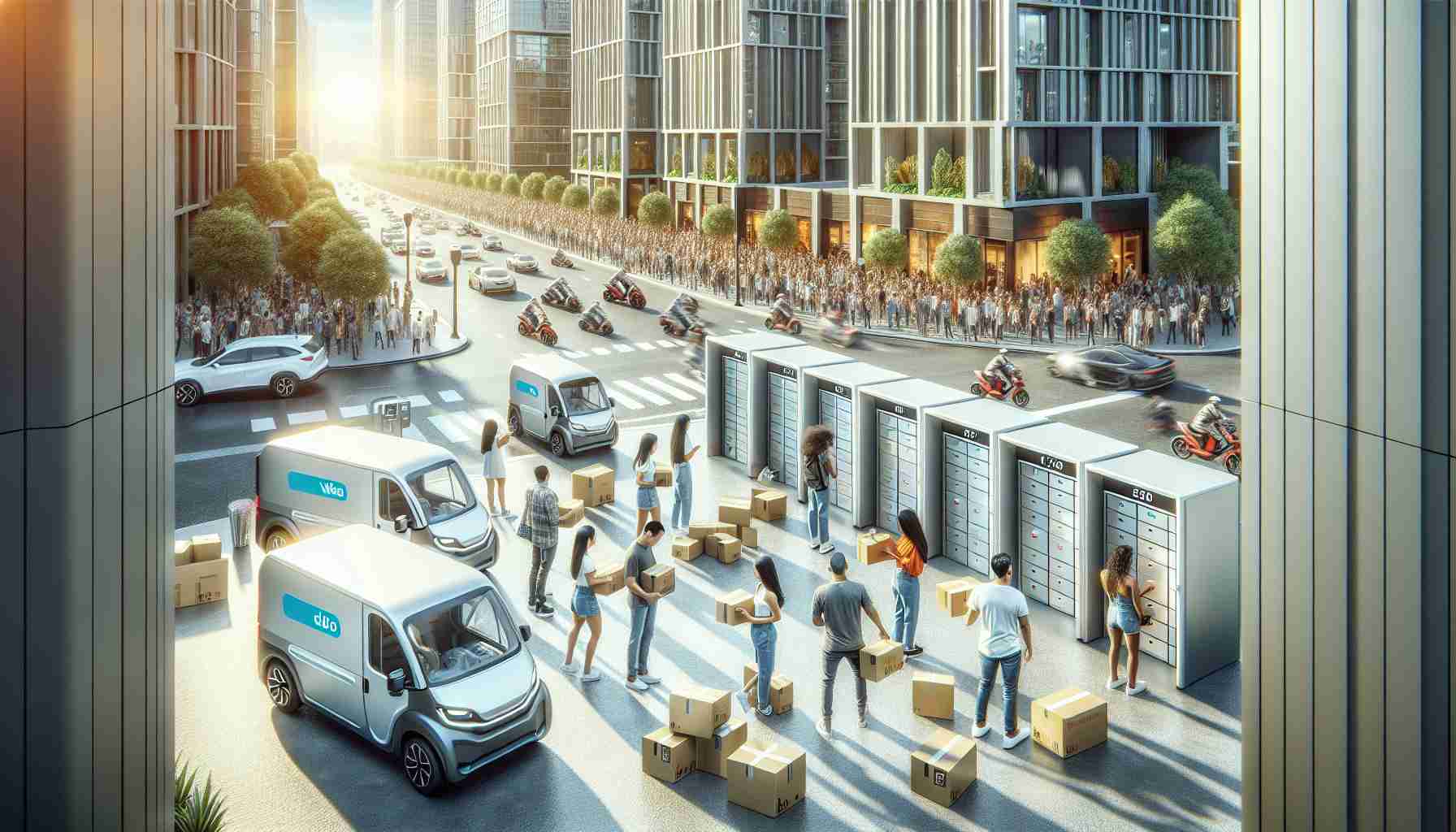In major cities like New York, the increase in online shopping has led to a surge in parcel deliveries, causing congestion and inefficiencies in the traditional truck-based delivery system. As a result, innovative solutions such as cargo bike delivery programs are being explored to address these challenges and make last-mile delivery more sustainable.
The rise of e-commerce has significantly changed the way people shop, with more people opting for home delivery rather than visiting physical retail locations. This shift in consumer behavior has put pressure on the transportation system, leading to increased traffic congestion and slower delivery speeds. In Manhattan, for example, truck speeds have dropped to as low as seven miles per hour.
To combat these issues, cities like Miami, Boston, and Portland have implemented cargo bike programs to facilitate more efficient and environmentally-friendly last-mile deliveries. By using cargo bikes instead of trucks, delivery companies can navigate through dense urban areas more easily, avoiding congested streets and minimizing their carbon footprint.
However, implementing these programs is not without challenges. Retailers and shipping companies need to collaborate and invest in the necessary infrastructure to support cargo bike deliveries. This could include the creation of dedicated bike lanes and the establishment of warehouse-friendly zoning regulations. Governments can also play a role by offering incentives such as special loading zones and implementing congestion pricing to discourage excessive vehicle use.
Changing consumer behavior is another essential factor in improving last-mile delivery efficiency. Encouraging customers to bundle their orders or pay a fee for retail deliveries can help reduce the number of individual packages being transported. These measures require both carrots and sticks, with retailers incentivizing customers to consolidate orders, and governments imposing fees or regulations to discourage excessive online shopping.
By embracing sustainable last-mile delivery solutions, cities can reduce congestion, improve delivery speeds, and decrease emissions. While there are challenges to overcome, the collaboration between companies, governments, and consumers can create a more efficient and environmentally-friendly urban logistics ecosystem.
So the next time it rains in New York City, bike messengers like Michael Singh will continue to navigate the flooded streets, making their deliveries on time and contributing to a greener future for urban logistics.
The rise of online shopping has had a significant impact on the transportation industry, particularly when it comes to last-mile delivery. The traditional truck-based delivery system has become increasingly inefficient and congested, especially in major cities like New York. The demand for faster and more sustainable delivery options has led to the exploration of innovative solutions such as cargo bike delivery programs.
Cargo bike delivery programs have been implemented in several cities across the United States, including Miami, Boston, and Portland. These programs allow delivery companies to use cargo bikes instead of trucks for last-mile deliveries. By utilizing cargo bikes, companies can navigate through congested urban areas more easily, avoiding traffic and reducing delivery times.
The implementation of cargo bike programs is not without challenges. Retailers and shipping companies need to invest in the necessary infrastructure to support cargo bike deliveries. This could involve creating dedicated bike lanes and establishing warehouse-friendly zoning regulations. Collaboration between government entities and private companies is crucial in overcoming these challenges and ensuring the success of cargo bike delivery programs.
Changing consumer behavior is also key to improving last-mile delivery efficiency. Encouraging customers to bundle their orders or pay a fee for retail deliveries can help reduce the number of individual packages being transported. Retailers can incentivize customers to consolidate orders, while governments can impose fees or regulations to discourage excessive online shopping.
The market forecast for sustainable last-mile delivery solutions is promising. As more cities and companies recognize the benefits of cargo bike programs, the demand for sustainable delivery options is expected to increase. According to a report by Research and Markets, the global last-mile delivery market is projected to reach $55.2 billion by 2027, with a compound annual growth rate of 12.3% from 2020 to 2027.
In addition to cargo bikes, other sustainable delivery options such as electric vehicles and drones are also being explored. Electric vehicles, in particular, have gained traction as a viable alternative to traditional trucks. Major companies like Amazon and UPS have started incorporating electric vehicles into their delivery fleets to reduce emissions and improve efficiency.
Overall, by embracing sustainable last-mile delivery solutions, cities can alleviate congestion, improve delivery speeds, and reduce emissions. The collaboration between companies, governments, and consumers is essential in creating a more efficient and environmentally-friendly urban logistics ecosystem.
For more information on the future of sustainable last-mile delivery, you can visit Research and Markets, a leading market research company specializing in transportation and logistics trends.







